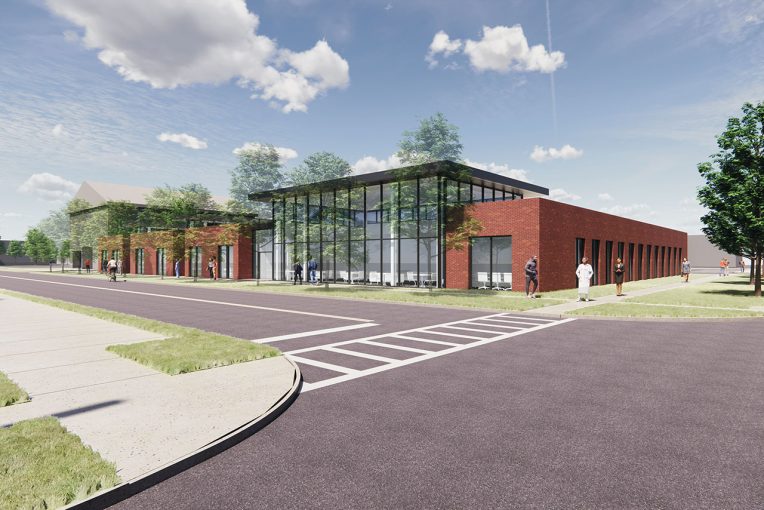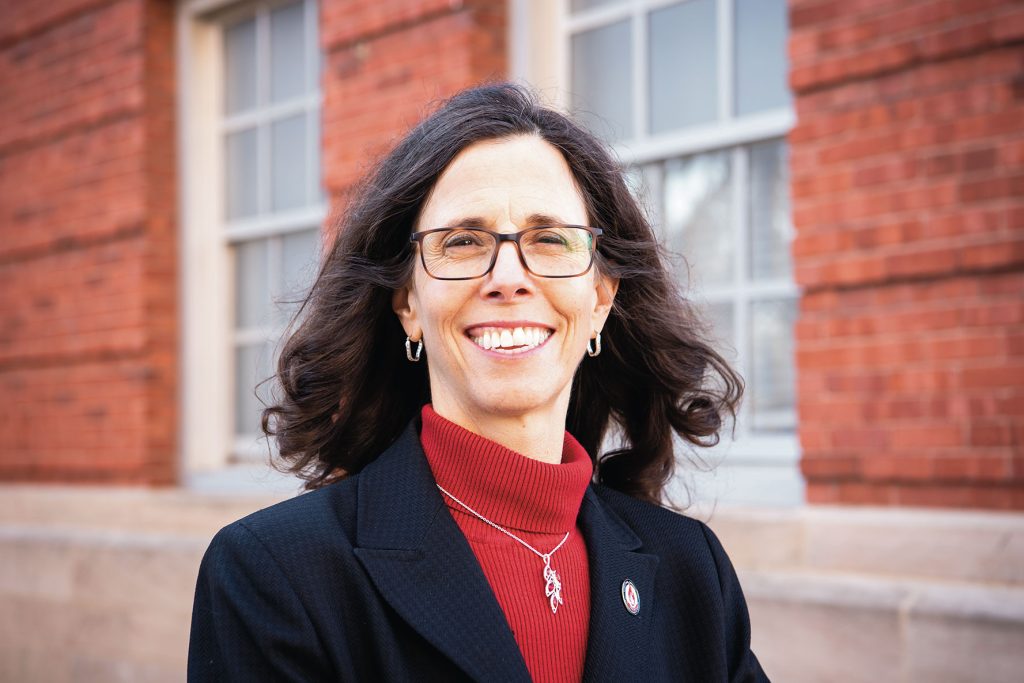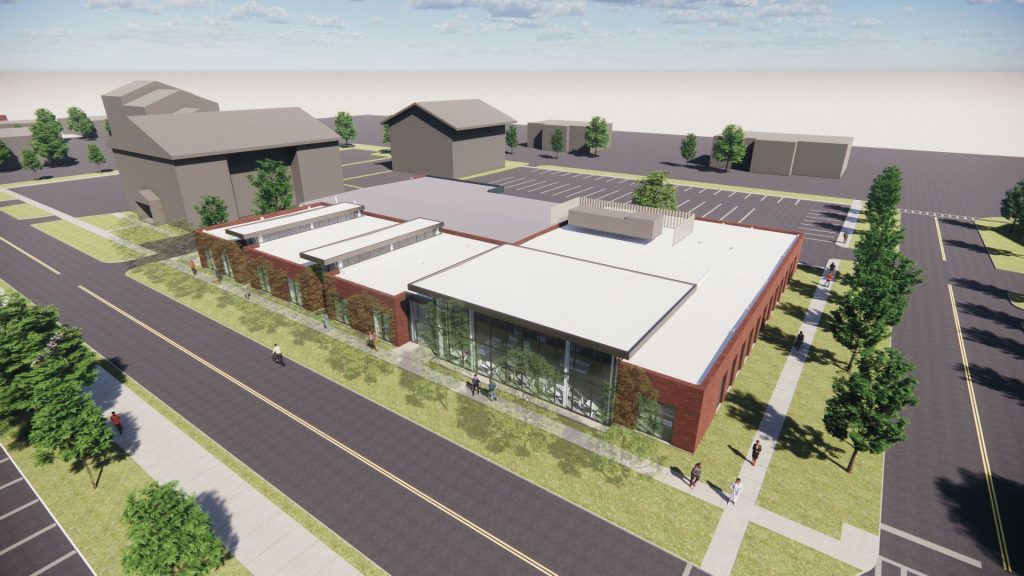Dr. Denise Hammer, D.N.P. ’16, turned off her video monitor, bringing an end to hundreds of hours of reviewing video recorded for a research project conducted in Illinois State University’s Mennonite Lab Building.
The job of analyzing video of nursing students administering medication in the lab was never going to be quick or easy. Capturing the video with handheld cameras in a cramped hallway space proved challenging, as camera angles were routinely blocked by equipment or the participants themselves. Audio from the student participant in the video frame could occasionally be confused with other voices nearby, as the study was conducted in back-to-back cubicle spaces in a heavily trafficked hallway.
For Hammer, an assistant professor in the Mennonite College of Nursing (MCN), it all added up to extra hours of analysis. She often had to watch videos three or four times to confirm student participants had completed steps such as scanning the barcode on a nursing mannequin’s patient wristband. And sometimes that still wasn’t enough.
“I couldn’t see the students performing the activities in the video,” said Hammer, who started teaching at Illinois State in 2012 after earning a master’s degree. “If the student did not verbalize and the video couldn’t verify that they had completed a task, it had to be marked as missing data.”
Enhancement and expansion of the Mennonite Lab Building will soon remove such obstacles to faculty research. An $18 million construction project approved by Illinois State’s Board of Trustees in 2021 will provide new technology and much-needed space for the growing nursing program.
Asked if the forthcoming improvements would have positively impacted her research, Hammer is quick to answer. “Absolutely. Additional space and mounted cameras would have been wonderful.”
Work on the corner of West Locust Street and Normal Avenue, just to the north of the Bone Student Center, began last summer. A crane lifted and pivoted the existing facility 90 degrees. A bulldozer demolished a vacant house and apartment building west of the current site to make way for new construction.
The project is expected to be complete in time for the fall 2024 semester. The facility, which initially opened in 2011, will expand by 16,000 square feet and will house a classroom, simulation rooms and control center, a health and wellness space, faculty suites, and dedicated areas for students to study and socialize. The lab building will remain open during construction.
“All the new, exciting things that are happening in health care—we want to be a part of all of it.”
Dr. Judy Neubrander
“The biggest limitation we have right now is space,” said Joanna Willett ‘09, the facility’s director. “The new building will have four simulation rooms and six debriefing areas, and those will really open up more opportunities. Not only will there be more space, but there will be more high-tech space.”
The reimagined facility was designed with a focus on technology and versatility. MCN leadership wants more audio-visual, artificial intelligence, and virtual reality technology in the facility. A willingness to embrace emerging technology is evident in MCN’s recognition that versatile spaces may be needed to incorporate technology that doesn’t yet exist.
“When we talk about ways that we want to expand research, we know it’ll be through technology,” said Dr. Judy Neubrander, dean of MCN. “All the new, exciting things that are happening in health care—we want to be a part of all of it.”
The expansion of the Mennonite Lab Building will also allow the college to eventually add 400 students to its current enrollment of 600 students. This is in addition to MCN’s new partnership with Memorial Health that will pave the way for 24–48 students to be enrolled at the Springfield hospital starting this fall.
The pandemic highlighted the critical need for more nurses. In 2021, the American Nurses Association declared the nursing shortage a national crisis. “Our hospitals need more nurses,” Neubrander said. “So getting a new building that will also accommodate the growth of the program, I think is a huge win-win.”
The value of Illinois State’s Menonnite Lab Building was another lesson learned from the pandemic. When nursing students weren’t allowed in hospitals for clinical training, the simulation space became their primary training ground.
Additional space will allow greater student access—and not just for nursing students. Neubrander sees opportunities for increased cross-departmental collaboration, noting potential partnerships with the Department of Communication Sciences and Disorders and the new College of Engineering set to open in 2025.
“Imagine the problems we could solve if we had nurses working with engineers,” she said.
Nevertheless, the Nursing Simulation Center will retain its fundamental role of preparing nurses to enter the workforce. MCN faculty will carry on in its mission to pass along knowledge to better educate the next generation of nurses.
Faculty research will continue with that aim, too. “If you implement safe processes and people follow them, fewer errors will be made,” Hammer said. “Better care will be provided, and better outcomes will be had by everyone.”
Hammer’s research also furthers the notion that nursing students benefit from simulated experience in medication administration.
“The sim lab is a safe place where students can practice their skills,” Hammer said. “If they make a mistake in the simulation lab, they can work through the problem and see the results.”



